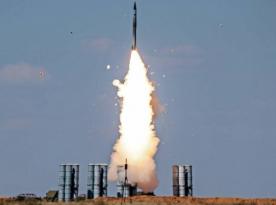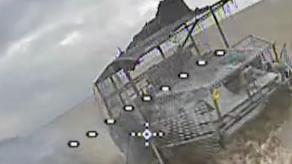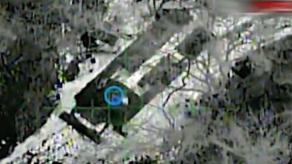Operators of Ukraine's Unmanned Systems Forces have achieved a significant success by striking rare russian Zhitel R-330Zh electronic warfare station. This target represents one of the most sophisticated and expensive pieces of russian electronic warfare equipment currently deployed on the battlefield. Its destruction not only weakens enemy capabilities but also demonstrates the growing effectiveness of Ukrainian drone operators and reconnaissance coordination.
The Zhitel system is known for its ability to jam a wide range of communications. According to its specifications, it can disrupt ground-based radio transmissions at distances of up to 25 kilometers and interfere with airborne communications at ranges up to 50 kilometers. This makes it a potent threat against both tactical communication networks and unmanned aerial systems operating in its vicinity.
Read more: From Light Shows to Battlefield: China's DAMODA Drone Swarm Launcher Could Turn into a War Threat
Since the beginning of the full-scale invasion, the confirmed destruction of only 23 such Zhitel systems has been documented. This low number highlights how rare and valuable each of these systems is. Their elimination not only deals a financial blow to russia but also creates a temporary gap in electronic warfare coverage along the affected front.
The latest confirmed strike took place in Luhansk region. Fighters of the Nemesis 412th Regiment, in cooperation with aerial reconnaissance from one of the State Border Guard Service units, identified and destroyed the system. This operation underscores the growing precision and coordination between different Ukrainian units, particularly between ground-based operators and aerial intelligence assets.
Beyond its rarity, the Zhitel is a technologically complex system capable of both offensive and defensive electronic operations. It not only jams enemy communications but can also locate and triangulate sources of radio emissions, providing coordinates for further artillery or missile strikes. This dual capability makes it a crucial tool in russia's effort to control the electromagnetic spectrum on the battlefield.
By establishing interference across satellite communication, GPS navigation, and GSM networks, the Zhitel system severely complicates both military and civilian communication within its operational zone. Its loss therefore reduces russia's ability to disrupt Ukrainian command and control, as well as reconnaissance and targeting functions that rely on GPS-based systems.
As Defense Express previously reported, fighters of the Nemesis 412th Regiment carried out a high-intensity pursuit of russian BM-21 Grad multiple launch rocket system on the Zaporizhzhia front, successfully destroying the target after a dramatic chase that lasted just over 30 minutes. The operation, conducted in coordination with aerial reconnaissance units of Ukrainian forces, ended with russian vehicle unable to escape.

Read more: Ukrainian Forces Chase and Eliminate russian Grad Rocket System














